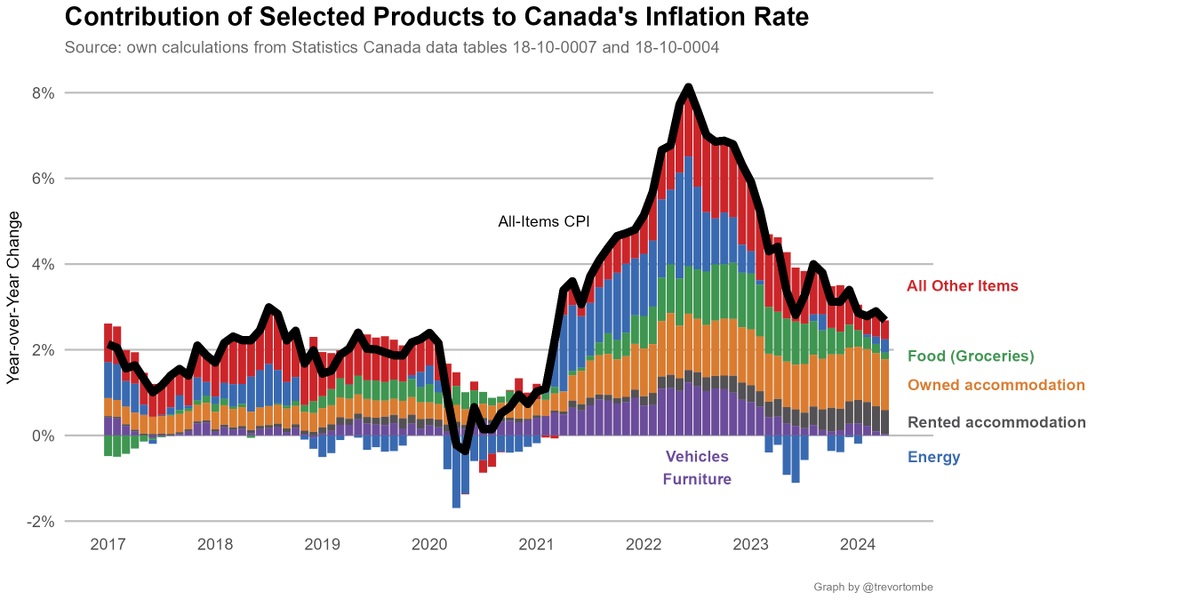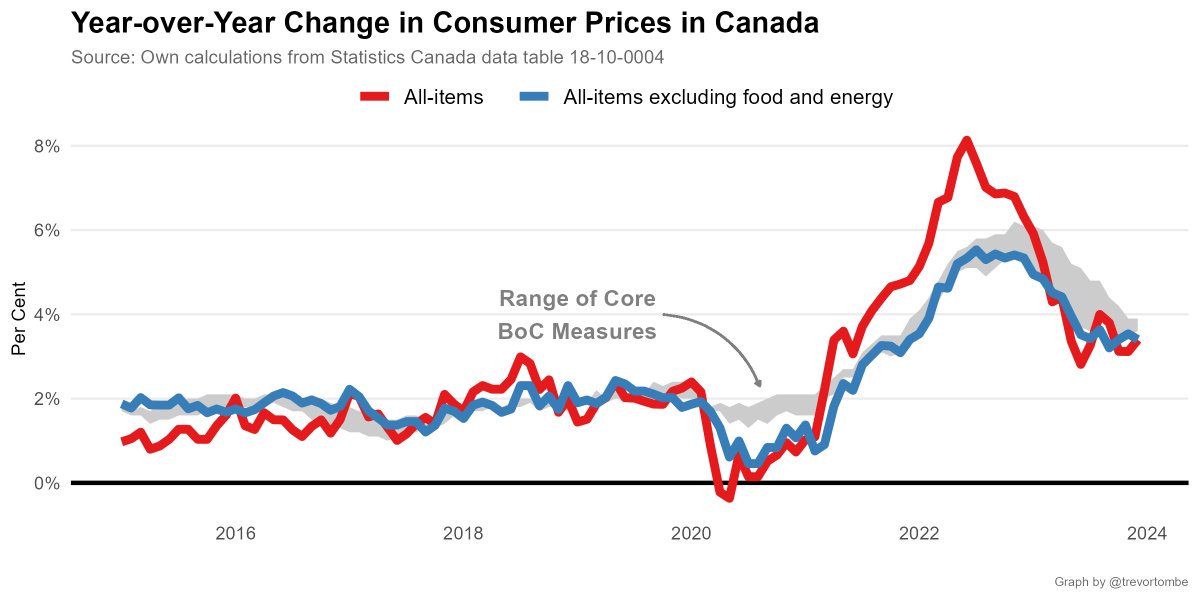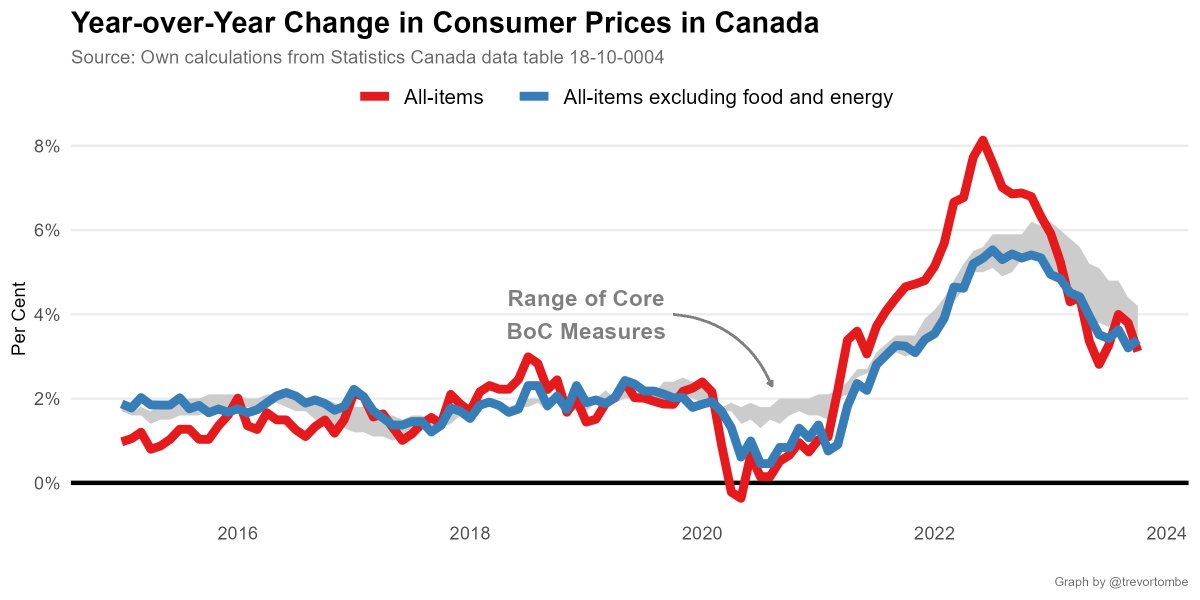A widely anticipated, and interesting, development. What is going on? Should taxpayers be concerned? I'll explain. 🧵 #cdnecon #cdnpoli
https://twitter.com/CTVNews/status/1597692271138324485
First, here's the full picture of the Bank of Canada's finances for 2021 before all the fun started.
The Bank earns revenue from interest earnings on bonds that it holds. Expenses are (1) normal stuff, staff, etc., and (2) interest expenses, which I'll explain next.
The Bank earns revenue from interest earnings on bonds that it holds. Expenses are (1) normal stuff, staff, etc., and (2) interest expenses, which I'll explain next.

Commercial banks hold much of their reserves at the central bank. They earn interest on these deposits. Recently those holdings have grown significantly as a result of quantitative easing during the pandemic. Now ~$200 billion earn interest at 3.75%. 

That has dramatically increased interest payments to commercial banks. I estimate that sometime this summer, interest expenses exceeded total Bank of Canada revenues. The Q3 books released today was the first time this has been confirmed. bankofcanada.ca/wp-content/upl… 

This is unique. Normally when interest rates rise so does Bank revenues/profits (graph shows all years in Bank history). But today its bonds were acquired at low rates and aren't being replaced by newer higher earning ones as it shrinks its balance sheet. But expenses are rising. 

Fun historical aside, paying interest on deposits at the Bank of Canada is a modern thing. At first, it was not allowed to. Here's the original Act. Things changed in the late 1990s for reasons we don't need to get into now. 

Loses at the central bank is also new for Canada. Typically, surpluses typically go to the government as a remittance.* That will no longer be the case.
* Just accounting. The Bank of Canada is consolidated within the federal govt books like all enterprise crown corps.
* Just accounting. The Bank of Canada is consolidated within the federal govt books like all enterprise crown corps.

How does the Bank of Canada "cover" this loss? Well, in Q3 it had an outstanding amount owing to the government. An accounts payable, if you will. So, it just shrunk that. 

In the future, it will need to do something else. The U.S. Federal Reserve is booking its losses in a "deferred account", which is just a way of saying it'll give the Treasury less in the future to make up for the losses today.
The govt here hasn't decided what to do.
The govt here hasn't decided what to do.
Should taxpayers be concerned? As a crown corp, losses will negative affect the federal budget. But we should think of this as no different than the government's debt service costs. Higher interest rates increase those costs.
In effect, QE is like the government (from a consolidated perspective) issuing a bunch of short-term (think: overnight) debt to fund the redemption of long-term debt. This makes debt service costs more sensitive to changes interest rates. 

It's just that we account for it differently. The Bank pays interest on deposits, which is recorded as an expense on its books not as interest expenses to the federal government. But that's really all it is.
For more: economist.com/finance-and-ec…
For more: economist.com/finance-and-ec…

So yes, there are implications for the federal budget -- but it isn't a novel challenge and no different than the effect that rising interest rates has.
For more on how to think about QE, this by Stephen Williamson is excellent: stlouisfed.org/publications/r…
For more on how to think about QE, this by Stephen Williamson is excellent: stlouisfed.org/publications/r…
Also, critically, the Bank of Canada is not a commercial bank. Losses don't affect its ability to operate, and there really isn't such a thing as solvency here. Their goal is also not to generate profit, but to conduct monetary policy.
For more: bis.org/publ/bppdf/bis…
For more: bis.org/publ/bppdf/bis…
I'll end by noting that while financial losses at the central bank is a first for Canada, it's not uncommon internationally even among adv econ CBs.
And most developed countries will see CB losses. Australia already has. The United States already has. The UK already has. Etc.
And most developed countries will see CB losses. Australia already has. The United States already has. The UK already has. Etc.
How long will financial losses last, and how large will they get? I'll hopefully have a paper on that out soon!! Stay tuned!
In the meantime, hopefully this thread was helpful.
/fin
In the meantime, hopefully this thread was helpful.
/fin
• • •
Missing some Tweet in this thread? You can try to
force a refresh


















